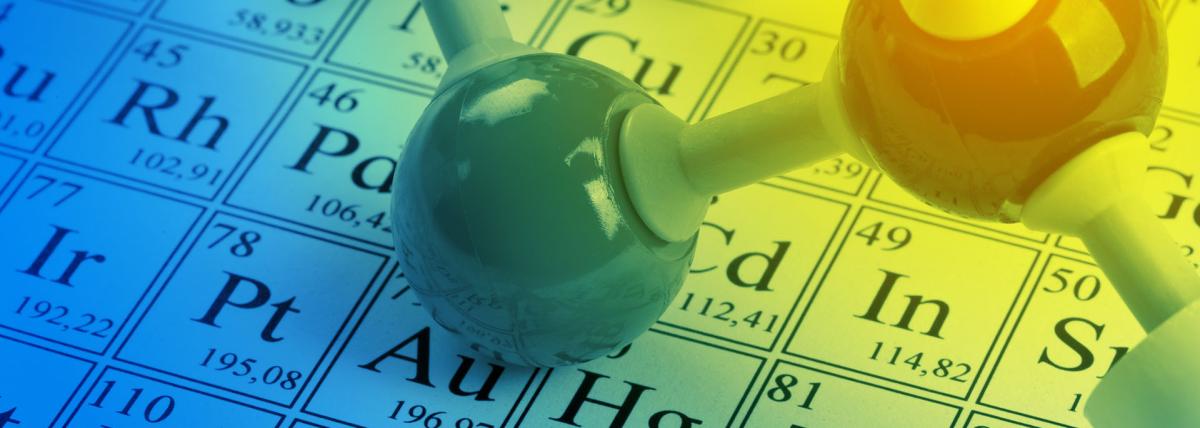Grades:
10th Grade, 11th Grade, 12th Grade
From learning the basics of the endocrine system (organs) to creating a 3d visual model of a patient and demonstrating how hormones are released across the body, students will go from simple to
Grades:
Kindergarten, 1st Grade, 2nd Grade
Teachers don't talk trash, they talk COMPOST!! Compost is the best way to teach students the value of community as they create a Classroom Compost Program. In this 3-day introductory lesson, students
Grades:
6th Grade
In this series of lessons, students will be doing a hands-on investigation of 3D shapes and their nets, discovering Euler's formula for 3D shapes, and building both an icosahedron and a geodesic dome.
Grades:
4th Grade
Students use knowledge of light and shadows to create and perform a shadow puppet performance.
Grades:
4th Grade
Students learn vocabulary and learn about how light and shadows interact. Students explore using flashlights and making shadow hand puppets.
Grades:
9th Grade, 10th Grade, 11th Grade, 12th Grade
"A Solution to Plastic Pollution" – an engaging and hands-on lesson plan designed to empower students to address one of the most pressing environmental challenges of our time: plastic pollution. In
Grades:
6th Grade, 7th Grade, 8th Grade, 9th Grade, 10th Grade, 11th Grade, 12th Grade
Students will pick an issue that they think exists in the world and propose a solution via a presentation. This will model a TedTalk.
Grades:
10th Grade
Students will learn about the concept of ratios and their applications in cooking and baking. They will create simple recipes, formulate questions based on these recipes, and engage in activities to
Grades:
9th Grade
Students will take an amount of time to plan and build a eco friendly home. They will include four eco friendly ideas into their home both on the exterior and interior of their build. Students may
Grades:
2nd Grade
This is a week long review activity to be done outdoors on student devices. Students will complete physical/ outdoor activities and see how math fits into their daily life. This is meant to be done in
Grades:
6th Grade, 7th Grade, 8th Grade
In this project, students practice using scale by designing and crafting items for a model bedroom using a 1:12 scale ratio. They learn how to accurately shrink real-world dimensions down to miniature
Grades:
2nd Grade, 3rd Grade, 4th Grade
Students learn about the gila woodpecker as well as the 5 S's of birdwatching. Students then make observations of birds in their schoolyard, summarize the findings on a graph and slideshow, and design
Grades:
7th Grade
In this lesson students will learn about Frank Lloyd Wright's concept for Broadacre City and then create their own acre plot of land and home facade according to Frank Lloyd Wright's idea.
Grades:
6th Grade, 7th Grade, 8th Grade, 9th Grade, 10th Grade, 11th Grade, 12th Grade
In this lesson students use a Pocketlab Voyager to collect data on a toy car as it goes down a track. Analysing the data, students calculate gravitational potential energy and Kinetic energy of the
Grades:
6th Grade, 7th Grade, 8th Grade, 9th Grade, 10th Grade, 11th Grade, 12th Grade
This lesson is intended to be an introduction to teach students how to use the PocketLab Voyager. It covers how to connect the Voyager to your device, using Pocklab Notebook, collecting and analysing
Grades:
6th Grade
Explore the concepts of force and energy transfer by launching rockets of varying weights and observing the resulting flight distances. Gather numerical data on the flight distances of the rockets and
Grades:
6th Grade
Students will: Construct a pool noodle rocket flinger using provided materials, demonstrating an understanding of the design principles involved. Explore the concepts of force and energy transfer by
Grades:
Kindergarten
Discuss with students how the size and shape of a structure helps to make different areas and shapes of shade. You might briefly discuss how some structures block the sunlight from the top only, while
Grades:
9th Grade, 10th Grade, 11th Grade, 12th Grade
The first rule in the chemistry lab is “don’t eat or drink or lick anything in the lab”! This lesson breaks those rules and shows students how culinary is really a practical application of chemistry
Grades:
5th Grade, 6th Grade, 7th Grade
In this lesson, students will explore the concept of reflection in mathematics through the creation and design or original Rangoli patterns. Students will gain an understanding of reflectional
Grades:
5th Grade, 6th Grade
Students use the engineering design process and recycled materials to create a plant float. Can be paired with Fix the Fish lesson if more chemistry and life sciences topics are desired.
Grades:
4th Grade
Dive into adaptations and an intro to evolution through activities, readings, analyzing data, and a virtual lab to determine what happens to a species over time. There are plenty of extensions and is
Grades:
5th Grade, 6th Grade
Students will code Micro:Bits to be able to send and receive coordinates. Students will mark coordinates sent to opposing team in order to complete a game of Battleship.
Grades:
10th Grade, 11th Grade, 12th Grade
In this engaging and interactive lesson, high school students (grades 10-12) will explore the fascinating world of molecular geometry using the PhET "Molecule Shapes" simulation. The lesson is
Featured Lesson Plans
Check out these notable lesson plans.

Featured
Shelter From the Sun
Grades:
Kindergarten
Kindergarten students explore earth materials to find out how the sun and other heat sources change their temperature. The students use what they learn in order to choose earth materials that would be

Featured
OMG! Empirical Formulas
Grades:
9th Grade, 10th Grade, 11th Grade, 12th Grade
Students will discover the Empirical Formula for the synthesis of Magnesium and Oxygen through a laboratory experiment in which they will react Magnesium Ribbon with atmospheric Oxygen by super

Grades:
6th Grade, 7th Grade, 8th Grade
In this lesson, students will explore the concepts of gear ratios and proportions. They will construct a working gear system and observe how the ratio between gears affects their motion. They will use
